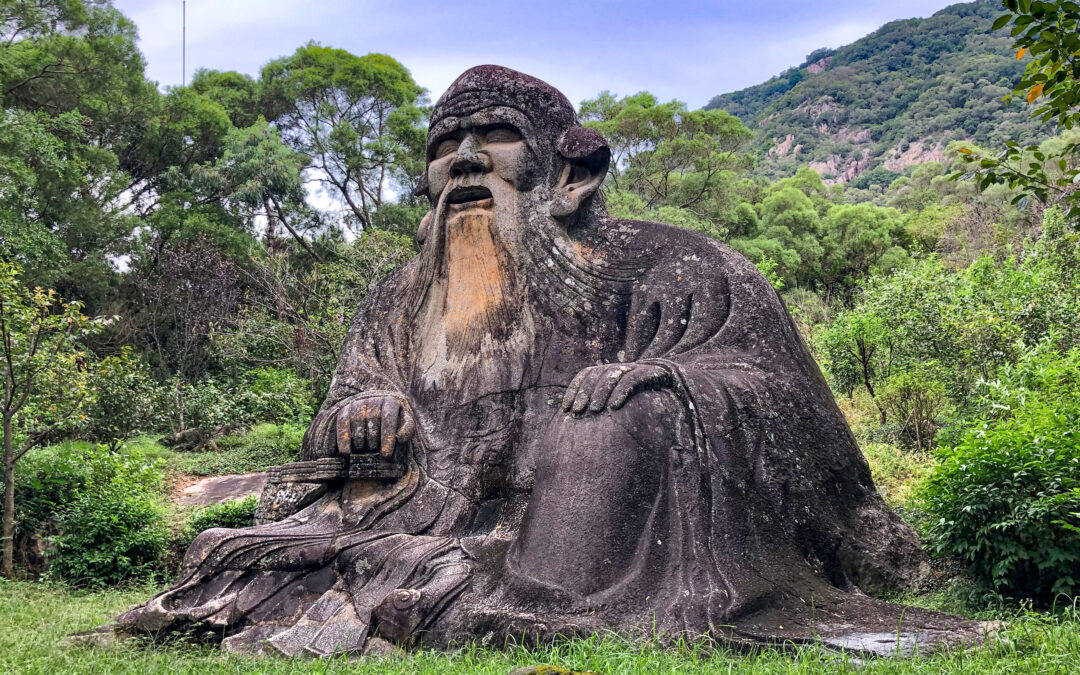Lao Tzu was a Chinese philosopher and poet who is believed to have lived in the 6th century BCE. He is considered the founder of Taoism, a philosophy and religious tradition that emphasizes living in harmony with the natural order of the universe, or the Tao.
According to legend, Lao Tzu worked as a keeper of archives in the imperial court of Zhou, but became disillusioned with the corruption and political strife of the time. He decided to leave the court and travel westward, where he was said to have composed the Tao Te Ching, a foundational text of Taoist philosophy.
The Tao Te Ching is a short book of 81 chapters that offers advice and guidance on how to live in accordance with the Tao. It is a collection of aphorisms and parables that emphasize the importance of humility, simplicity, non-action, and the avoidance of extremes. The text has been translated into many languages and has had a significant impact on Chinese culture and philosophy, as well as on Western thought and spirituality.
Lao Tzu’s philosophy emphasizes the importance of living in accordance with the natural order of the universe and the value of simplicity and humility in achieving inner peace and harmony. He believed that excessive striving, desire, and attachment to material possessions only leads to suffering and that the path to happiness and contentment lies in letting go of these things and embracing the simplicity of life.
- “The journey of a thousand miles begins with one step.” (Chapter 64)
- “Nature does not hurry, yet everything is accomplished.” (Chapter 43)
- “When I let go of what I am, I become what I might be.” (Chapter 44)
- “The wise man does not lay up his own treasures. The more he gives to others, the more he has for his own.” (Chapter 81)
- “He who knows others is wise; he who knows himself is enlightened.” (Chapter 33)
- “Kindness in words creates confidence. Kindness in thinking creates profoundness. Kindness in giving creates love.” (Chapter 67)
- “Simplicity, patience, compassion. These three are your greatest treasures.” (Chapter 67)
- “When you are content to be simply yourself and don’t compare or compete, everyone will respect you.” (Chapter 8)
- “The best fighter is never angry.” (Chapter 68)
- “In dwelling, live close to the ground. In thinking, keep to the simple.” (Chapter 19)
- “To the mind that is still, the whole universe surrenders.” (Chapter 16)
- “Respond intelligently even to unintelligent treatment.” (Chapter 64)
- “Silence is a source of great strength.” (Chapter 56)
- “At the center of your being, you have the answer; you know who you are and you know what you want.” (Chapter 15)
- “The flame that burns twice as bright burns half as long.” (Chapter 9)
- “The softest things in the world overcome the hardest things in the world.” (Chapter 43)
- “The more laws and order are made prominent, the more thieves and robbers there will be.” (Chapter 57)
- “He who stands on tiptoe doesn’t stand firm. He who rushes ahead doesn’t go far. He who tries to shine dims his own light.” (Chapter 24)
- “Life is a series of natural and spontaneous changes. Don’t resist them – that only creates sorrow. Let reality be reality. Let things flow naturally forward in whatever way they like.” (Chapter 20)
- “The Tao that can be told is not the eternal Tao. The name that can be named is not the eternal name.” (Chapter 1)
